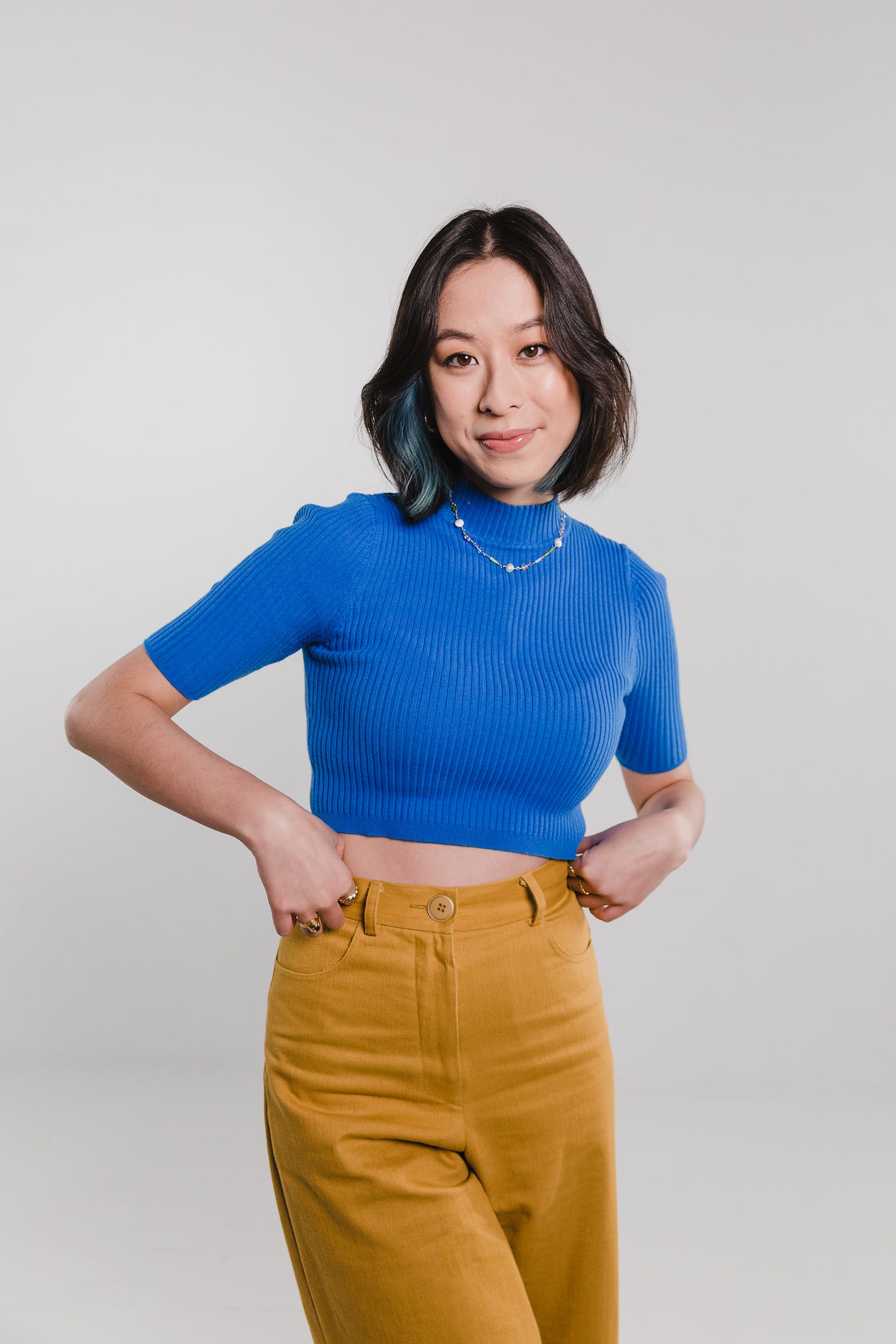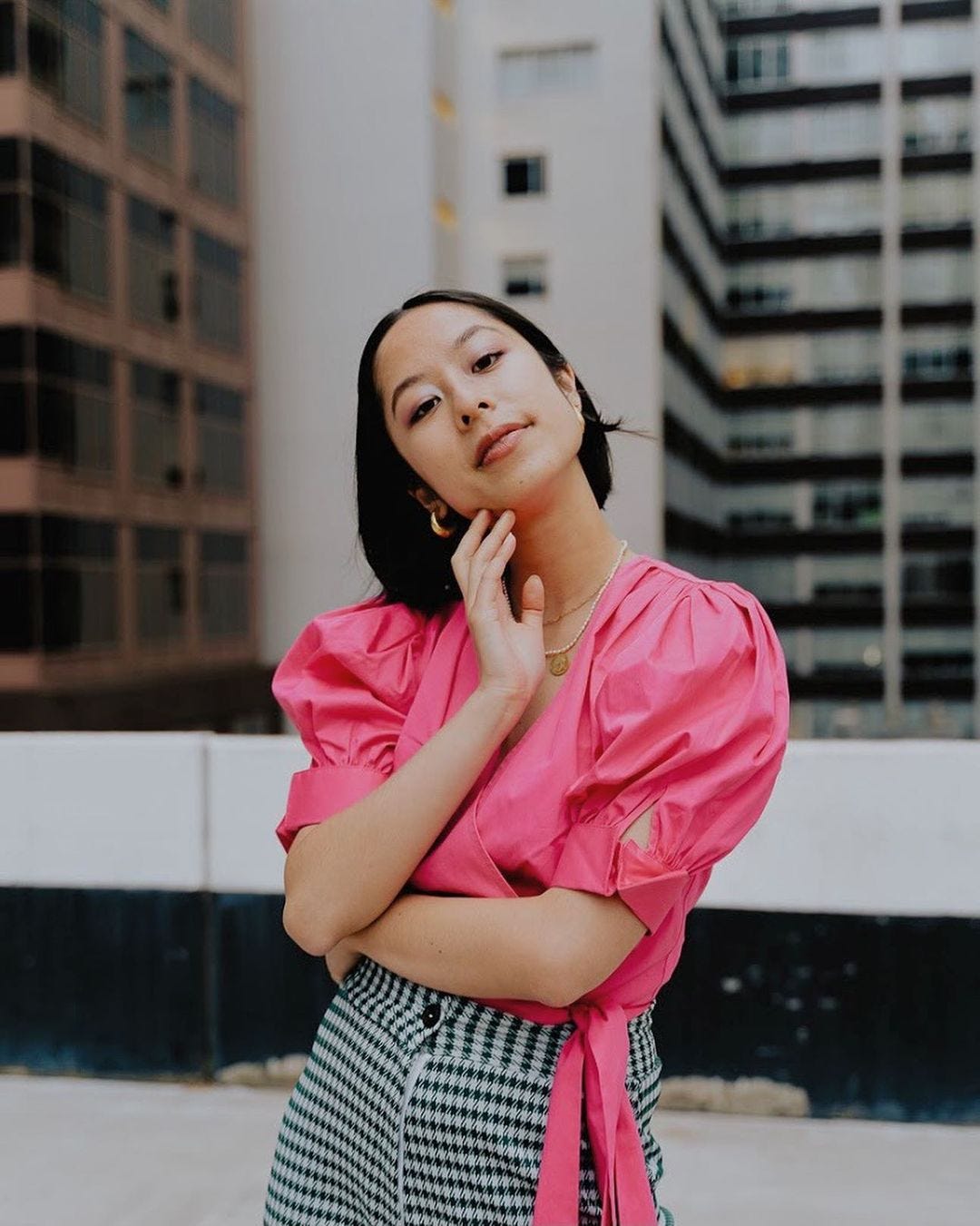Happy November, and welcome to the third edition of The Green Dress Report!
When I was dreaming up this newsletter, I knew from the beginning that Maggie Zhou was someone I wanted to reach out to. A podcaster, writer and content creator based in Melbourne, Zhou often posts on her Instagram or Tiktok about the problems within fast fashion, and provides advice to her combined 29,000 followers on how to wear and purchase clothing sustainably. I picked her brain about everything from her journey toward a more sustainable life to what consumers should do to lower the impact of their wardrobes. Far from feeling overwhelmed about how bad my clothes are for the environment, after hearing Zhou’s thoughts I came away reassured that I was not alone in feeling like what I was doing wasn’t good enough, and motivated to make decisions one day at a time.
Zhou didn’t always see herself as an advocate for sustainable fashion. She described how as a teenager, she started posting on Instagram, slowly building a community of people who shared her interest in fashion and eventually working with fast fashion brands who would send her clothing in exchange for posts. She had learned about sustainability while in university, but didn’t instantly have an “aha” moment where she made the connection between what she knew about the industry and the impacts of the brands she was working with. After a while, however, the fun of these collaborations “wore off,” and Zhou recalls feeling “icky” because these partnerships didn’t align with her beliefs and values. After interrogating this feeling further, Zhou stopped working with fast fashion brands at the end of 2019, instead transitioning toward focusing on fashion sustainability.
How does Zhou balance her job as a content creator with her desire to act more sustainably? “It’s hard,” she says. “Another term that we’re seeing online which I love is ‘imperfect sustainability.’ Because it’s true, sorry, I am not perfect!” Zhou explained that she doesn’t call herself “sustainable,” but rather as “an advocate for sustainable fashion.” This shift in framing can be important for those like Zhou who may feel pressure to make sustainable decisions 100% of the time. She went on to describe how she tries to embody this “imperfect sustainability” on her platforms, stating that although she feels an obligation to be sustainable in what she shared online, she tries to be honest too: “if I have a takeaway coffee cup, I’m not going to be trying to hide that …. The reason why I shied away from sustainability for so long was because I thought I would just never measure up, and that I would never be perfect, and that actually inhibited me from starting in the first place.”
For those who relate to Zhou’s sustainability impostor syndrome, she shared some helpful advice she received from a friend when struggling to commit to eating plant-based out of a fear of messing up and letting people down: “You don’t have to think about changing your diet for the rest of your life, every single meal for the rest of your life. All you have to do is think about the meal in front of you.”
Another barrier to sustainable fashion habits may be the cost of sustainable clothing. Zhou pointed out that a big part of fashion sustainability has to be buying less clothing. We do alright with the reusing and recycling part of sustainability, according to Zhou, but we don’t talk enough about reducing consumption. That doesn’t necessarily mean to stop buying fast fashion, but “if you usually buy four fast fashion, five fast fashion t-shirts a month, why not cut that down to just one or two?”
“Sustainability isn’t about just purchasing clothing, it’s almost like a state of mind, right? It’s about re-wearing clothes, it’s about being mindful about what you already own, it’s about washing them with care.”
Zhou went on to highlight a point made by Orsola de Castro, co-founder and creative director of Fashion Revolution: “the most sustainable garment is the one already in your wardrobe.” Luckily, according to Zhou, “you can actually participate in sustainability without spending a cent.”
Maggie’s Recs:
Here are some of Maggie’s sustainable fashion role models, brands she thinks are doing it right and recommended resources for those wanting to learn more:
Thanks so much for reading! I hope you enjoyed hearing Maggie’s thoughts as much as I did. Don’t forget to fill out the poll or leave a comment if you’d like to see a part two!







That is so awesome that you connected with someone from across the world!! I loved this piece and would love to see a part 2!